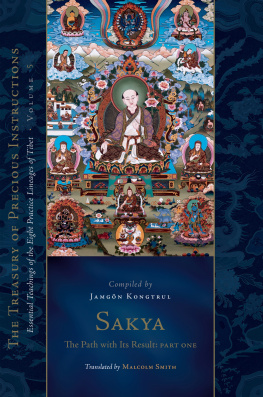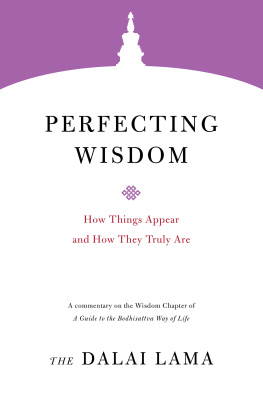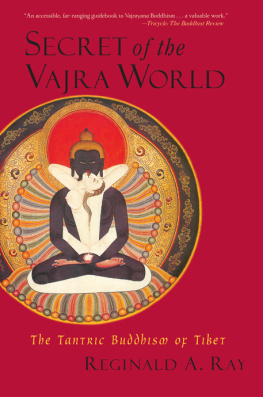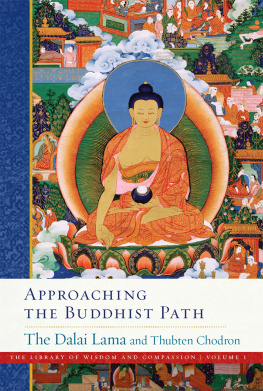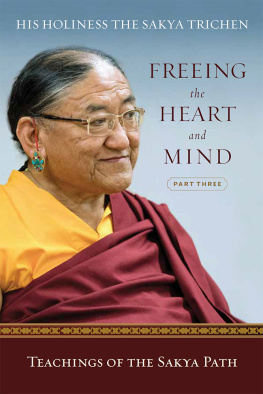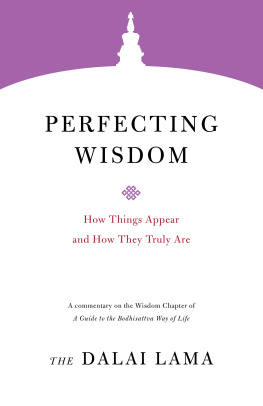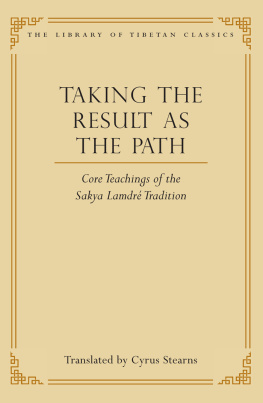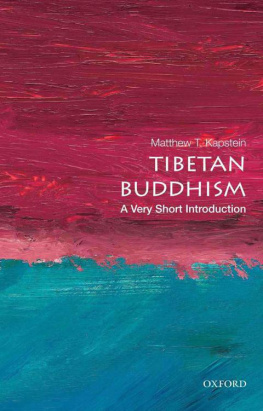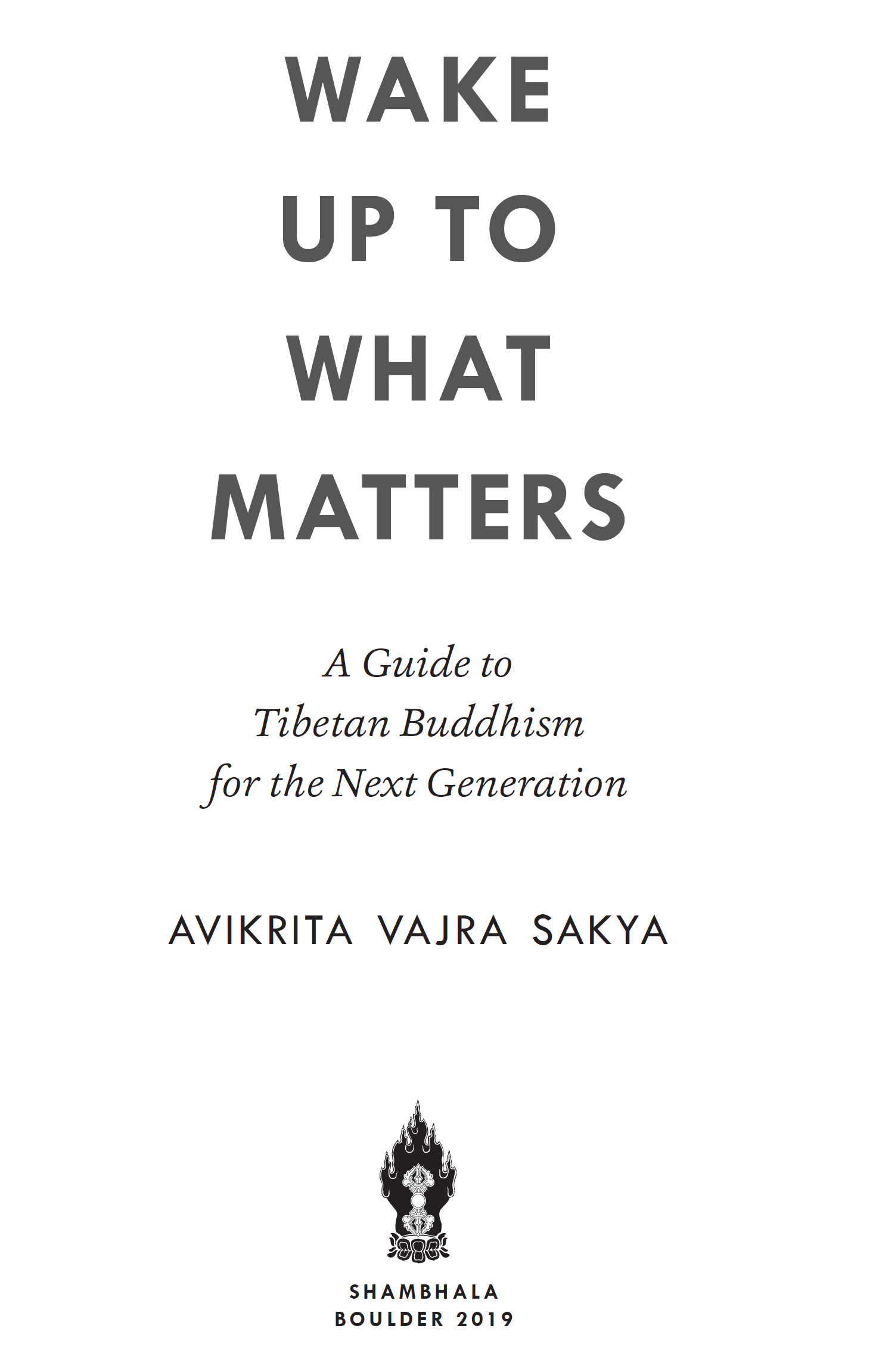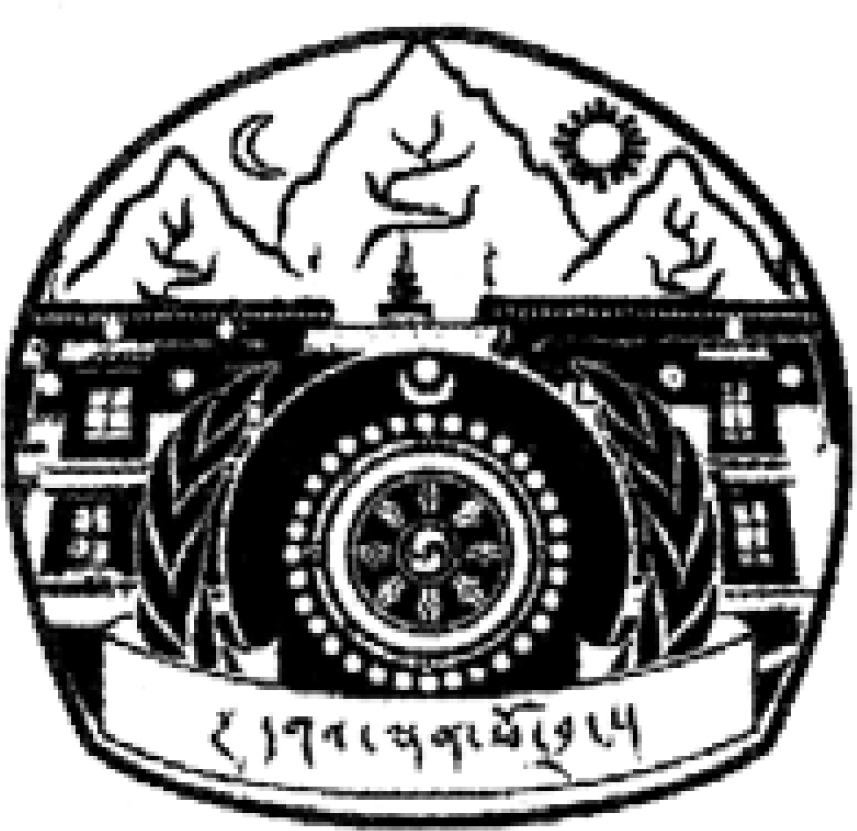Rinpoche has received education in classical Buddhism as well as knowledge and explains the general structure of Buddhism and how to apply it in our daily lives. I hope readers will find this book helpful.
FOREWORD
Abhaya Vajra Sakya
Before I became a monk, I had short dark hair and round spectacles, and due to my brothers appearance, some people used to jokingly refer to us as Tibetan Superman and Harry Potter. Now I have a shaved head and square glasses, so I dont get called Harry Potter anymore, but my brother is still Superman, and not just because of his looks. Heres why.
About his name. Being a Tibetan Buddhist leader, hes formally known as Khndung Avikrita Vajra Rinpoche. The title Khndung means son of the Khn family, an important spiritual lineage from Tibet. Avikrita Vajra is his actual name. Its Sanskrit rather than Tibetan because thats the original language of Mahayana Buddhism, which we follow, and it means something like Unchanging Diamond Thunderbolt. Rinpoche (a title for respected Tibetan lamas) is a title most people use to address him, as it is both affectionate and respectful; it means precious jewel. On top of that, his Tibetan Dharma name is Ngawang Kunga Thegchog Gyurme Dorje Tashi Dragpai Gyaltsen Pal Zangpo (a lot of names, huh?), but generally we just call him Avi Rinpoche.
Avi Rinpoche was born in Seattle, Washington, in 1993. Although he is Tibetan, he was born there because our family settled there in 1960, having had to flee Tibet due to the Chinese occupation. They were able to relocate thanks to a Rockefeller Foundation sponsorship at the invitation of the Tibetan Studies Program at the University of Washington. When our father, who was the first Tibetan born in America, grew up, he spent some time in Taiwan to learn Mandarin, and there he met a fellow Tibetan who was the younger daughter of a student of our grandfather. They fell in love, tied the knot, and went back to Seattle together to start a family of their own.
The first four years of Avi Rinpoches life were spent in America, until our parents decided to bring him to India so he could undergo the traditional training required to be a fully qualified spiritual leader. Eventually, he moved to the Sakya Center in Dehradun. While studying the basics of Tibetan Buddhism, Avi Rinpoche also received many precious teachings and initiations from His Holiness Jigdal Dagchen Sakya, His Holiness the Sakya Trichen, and many other respected masters of the tradition.
Recognizing the need for a base for Avi Rinpoche to deepen his training, His Holiness Jigdal Dagchen Sakya established the Sakya Heritage Society for the familys spiritual tradition in New Delhi. As soon as it opened in 2005, Avi Rinpoche moved there with his tutors and some fellow students. For the hot Indian summers, he would move to Darjeeling, where he studied the Vajrakila tantric rituals, a sacred practice of the Sakya tradition that is performed by Tibetan masters annually, as has been done continuously for many centuries.
After three years of rigorous study, he performed the Vajrakila ritual as chant master at the Sakya Center perfectly, then as ritual leader for the same ceremony in Ghoom Monastery in Darjeeling, to which our grandmother Dagmo Kusho said that it made her feel relieved that the future of the lineage was safe with him.
Of course, banging a drum and chanting were not the only things he learned over the years. At the age of thirteen, he undertook his first meditation retreat with the great meditation master Luding Khenchen Rinpoche. He later conducted another important retreat in Darjeeling, and upon its completion many people said that they saw auspicious signs. Before moving to college, he went into another meditation retreat to develop his intuitive wisdom in order to maximize his capacity for learning. Those retreats qualified Avi Rinpoche to lead certain rituals and teach advanced meditative practices.
In 2010, at the age of seventeen, to penetrate the deep philosophical tradition of the Sakya school, Avi Rinpoche enrolled at Dzongsar Institute in Himachal Pradesh. There he studied the classic treatises of Buddhist philosophy that came from the ancient Nalanda University of India, such as Nagarjunas root treatise on the Middle Way, and later important Tibetan texts, such as Sakya Panditas Treasury of Valid Cognition and Reasoning. Although that takes so much of his time, he still makes time to fulfill his personal pledge to attend the Vajrakila rituals each year and, during his winter break, travels to receive teachings from great masters such as His Holiness Jigdal Dagchen Sakya, and has now started to share his knowledge, teaching people across the globe with his blend of traditional wisdom and empathetic understanding of the modern world.
Although he has achieved so much in his training and activities as a young Buddhist teacher, thats not enough to know the real Tibetan Superman. After not seeing him for many years while I was growing up in Seattle, I came to see his qualities and how cool he really is, not just because hes my older brother but also because of how he is as a person and spiritual guide. He was actually my inspiration to move to India to train in a Buddhist monastery.
Back in 2013, when I wanted to do my first meditation retreat, Avi Rinpoche gave up his free time from college and came all the way down to Delhi from the Himalayan foothills to bestow the initiation I needed and to teach me how to do the retreat. This is just one example of how he is always so generous, patient, caring, and kind. Avi Rinpoche has a real passion for learning new things, having received an enormous amount of teachings, knowing four languages, and being always eager to ask questions. He never shows anger, never criticizes anyone, and always seems to look at the bright side of things. Of course he is passionate about Buddhism, but he is also passionate about teaching environmental protection, stopping discrimination and bullying, and promoting equality. He always thinks about others happiness rather than his own. He is also very accommodating, easy to relate to, and always willing to listen to the people who come seeking his advice and blessings.


